Futurama returned once more to our screens last year with a fourth outing on Hulu. The long-running animated series about the hijinks of intergalactic delivery crew Planet Express has seen its share of cancellations and comebacks over the years. Originally debuting on Fox in the late 90s to early 2000s, it lived on through movies and a Comedy Central run before that finale was called into question as well.
Now under the banner of Hulu, fans were eager to see what more adventures the creative minds behind Matt Groening and David X. Cohen could conjure up utilizing their blend of sci-fi fantasy and subversive humor. Overall the response was positive, with the new episodes feeling like a natural extension of the beloved world that had been established. It was clear the writers still had more stories to tell and the characters’ charm remained intact despite the passage of time.
With Season 12 now underway, does Futurama maintain its comedic course through the stars? This review will take a look at the first six episodes released to give a sense of how this future run is shaping up. We’ll examine if the characters, jokes, and themes feel as fresh as the first season of 3000 or if signs of aging have begun to show in this animated series that just won’t quit.
Futurama’s Favorite Faces
Nearly three decades since first taking flight, Futurama’s central crew remains as colorful as ever. Of course, leading the pack is Philip J. Fry, the well-meaning but often bumbling delivery boy from the 20th century. Adjusting to life in the 31st century continues to present both comedic obstacles and opportunities for emotional growth.
Then there’s turquoise-haired pilot Turanga Leela, keeping a watchful eye on Planet Express as both a steadying force and source of excitement. And let’s not forget the troublemaking robot Bender, slinging sarcastic quips while finding novel ways to shirk responsibilities.
Guiding these antics is Professor Hubert Farnsworth, the eccentric scientist whose experiments often lead to unpredictable situations. Playing support, bureaucrat Hermes Conrad strives to maintain order amid the chaos. Meanwhile, alien doctors Zoidberg and Amy Wong supply their own unique perspectives, whether comedic or heartfelt. With the return of co-founder Mom and appearances from favorites like URL and Nudar, Futurama’s world feels as lived-in as ever.
What truly breathes life into these characters is the accomplished voice cast. After so many years, they’ve perfected delivering each character with nuanced flair. Billy West lends multiple roles with wit and warmth, while John DiMaggio injects Bender with attitude. Katey Sagal and Phil LaMarr imbue Leela and Hermes with commanding presence. Maurice LaMarche brings sly humor as Kif, and Lauren Tom brings sweet support as Amy.
While Futurama will never be as fresh as that first burst of creativity, what impresses is how characters have evolved. Leela and Fry have grown together while maintaining spirit. Bender faces self-reflection. Even Farnsworth shows a sweeter side. It’s a testament to the cast and writers’ skills that after a decade apart, these characters feel like old friends welcoming you back into their lives. Their performances give this revitalized Futurama series a heartwarming sense of home.
Futurama’s New Frontiers
This season of Futurama tackles a diverse range of topics. In “Quids Game,” Fry is forced to compete in dangerous challenges patterned after his childhood games. It provides insight into Fry’s past while twisting nostalgia into dark satire.
In “The One Amigo,” Bender gets wrapped up in the world of NFTs during a trip to Mexico. Though the technology commentary felt dated, the heart of the episode explored Bender’s cultural roots.
“The Temp” spanned two decades as an unknown Planet Express worker created chaos. It poked fun at the familiar characters while introducing surprise depth.
“Beauty and the Bug” saw Bender take up bullfighting, only with giant alien insects in place of bulls. Slapstick shenanigans color outside the lines of a typical Futurama plot.
The season finale “Attack of the Clothes” satirized fast fashion through Professor Farnsworth’s clothing brand. It blended social commentary with the show’s sci-fi roots.
These episodes show Futurama’s range, from poignant backstories to zany premises. While some commentary felt past its prime, most delivered insight through absurd plots. The season mined both sentimentality and humor.
While no episode reached the highs of classics like “Jurassic Bark,” most were quite strong. “Quids Game” and “The Temp” excelled in character development. Even filler episodes like “Beauty and the Bug” kept viewers engaged through creative concepts.
The weakest entry was “Attack of the Clothes.” Though its message resonated, the execution fell flat compared to tighter scripts earlier in the season. However, Futurama still shone thanks to its colorful characters, witty writing, and ability to comment on society through any time period or setting. After over two decades, the show remains as innovative as ever.
Futurama’s Fresh Take on the Present
Futurama gained fame for peering into the future, but this season showcases its capacity to thoughtfully scrutinize current events. Episodes take aim at topics like NFTs, fast fashion, and AI through whimsical plots and wry humor. Yet commenting on rapidly evolving trends presents challenges for any show, animated or otherwise.
In “The One Amigo,” Bender’s NFT adventure pokes fun at the technological hype. The episode derives laughs not just from explaining the concept but by unfolding Bender’s personal journey, rediscovering his roots. While the NFT conversation may feel dated, the heart of the story offers timeless lessons about identity.
When the professor launches a clothing line in “Attack of the Clothes,” environmental and labor issues take center stage. But the episode spices up these pressing matters with delightfully bizarre sci-fi twists, from Professor Farnsworth’s deranged innovations to the crew facing fashion-motivated mutated monsters.
Even dated topics like Fyre Festival get reinvigorated through the show’s creative lens. An episode parodies the infamous festival not by mindlessly recycling old jokes but via an inventive Squid Game spoof that shines new light on Fry’s backstory.
Not all commentary remains cutting edge. Leela befriending a possessive AI in “One is Silicon and the Other Gold” now lacks the impact it could have had on the tech’s leading edge. But Futurama’s willingness to take risks ensures the show stays an astute social observer.
By framing commentary in offbeat plots, quirky humor, and emotional beats, Futurama breathes new life into current concerns. Its approach keeps discussions fun, accessible, and ultimately thoughtful—no small feat for any show commenting on rapid change. Despite dated topics, the season proves Futurama a sage forecaster of issues yet to come.
Futurama’s Timeless Visual Style
From the vivid neon signs of New York City to the wonders of alien worlds, Futurama has long brought the future to life through its visuals. Remarkably, the animation of Season 12 feels as stylish as ever, despite over two decades having passed.
Many shows evolve their visuals over time, but Futurama has steered clear of major redesigns instead focusing budgets on polishing the classics. Character models maintain their charming simplicity, though smoother movements show the benefits of modern technology.
Subtle tweaks like shinier metals or richer backgrounds enhance the viewing experience without disrupting the nostalgia fans cherish. Even revisiting older episodes, the timeless art direction avoids dating itself.
While competitors flaunt highly detailed CG environments, Futurama capitalizes on its hand-drawn roots. Expressive character acting remains a highlight, with timing and poses that elevate simplistic designs.
Clever backgrounds crammed with eclectic props populate each scene. From alien shop signs to bizarre machinery, Futurama designers pack each frame.
Combined with sharp writing, these dense landscapes bring the 31st century to life. Though minimalist by today’s standards, Futurama boasts a visual style optimized to serve its zany sci-fi stories.
Where newer shows risk visual exhaustion, Futurama remains a feast for the eyes through clear presentation. Its economics of line and color allow focus on fun over sensory overload. Some shows evolve; Futurama wisely chose to polish its enduring look.
Returning to Form
Any revival comes with high expectations, hoping to recapture past glories. Yet Futurama’s Hulu return proves you can go home again. While Season 12 may not equal the show’s peak, it shows creators Cohen and Groening still understand what made audiences love these characters.
Fans knew recreating those classic early seasons was impossible. Too many years have passed, and too much has changed. Yet this season comes closer than any before it, with nimble sci-fi satire and heart among robots and aliens. Episodes like “Quids Game” showcase wit as sharp as ever before.
Nostalgia can’t drive a whole series, and fans wouldn’t want repetition. Still, subtle nods to history enrich the new, like exploring Bender’s origins. And cameos from Harlem Globetrotters feel not just lazy pandering but respectful homage.
Compared to later Comedy Central runs feeling stretched thin, Season 12 flies with focus. Plots balance character and comment far better than random parodies of current fads. Commentary lands when serving story, not driving it.
While maybe lacking a true instant classic, solid entries like “The Temp” show Futurama still takes risks. Overall quality sits well above average for revivals. By embracing past success while moving forward, it proves there’s life in the old girl yet.
Futurama regained its footing under Hulu. Now fully warmed up, fans eagerly await where these characters roam from here. More adventures in delivery, science, and heart seem assured from a series always adept at world-building. Its return is a delivery decades in the making.
Futurama’s Promising Future
Overall, I’d give Season 12 a solid B. It delivers plenty of laughs and moments recalling Futurama’s prime. Though not consistently brilliant, episodes like “Quids Game” show wit as sharp as ever.
Watchability remains high. Newcomers won’t feel lost, and fans will find their faith in the series rewarded. Standout jokes and sci-fi scenarios make each worth experiencing.
As for the rest of the season, I expect we’ll see growth. With its footing now reestablished, looks for Futurama to take bolder creative risks. Upcoming episodes hint at both mining character depths never touched and social commentary even timelier.
Of course, recapturing past triumphs fully wasn’t realistic. But by embracing innovation while respecting roots, Season 12 proves Futurama can thrive well into its third decade. Later episodes may see it firing on all cylinders. Either way, this property remains in capable hands. I look forward to the journey ahead for Fry, Leela, and the Planet Express crew. After all these years, their adventures remain a welcome constant in an often unpredictable world.
The Review
Futurama Season 12
Futurama's 12th season shows both continuity and change but remains thoroughly entertaining. While not recreating past heights, humor, characters, and imaginative sci-fi are vibrant as ever. Under Groening and Cohen's dedicated stewardship, the series navigates revival adroitly.
PROS
- Humor is still sharp and delightful.
- Characters are as loveable as ever.
- Clever scifi concepts and parodies
- Addresses modern issues intelligently
- Heartfelt character moments provide depth.
CONS
- Not consistently as brilliant as earlier seasons
- Some references feel dated due to the production schedule.
- Storylines are occasionally uneven.
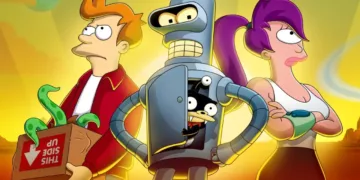
































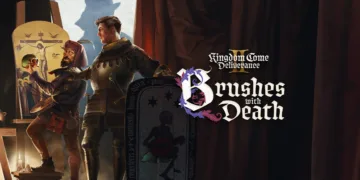








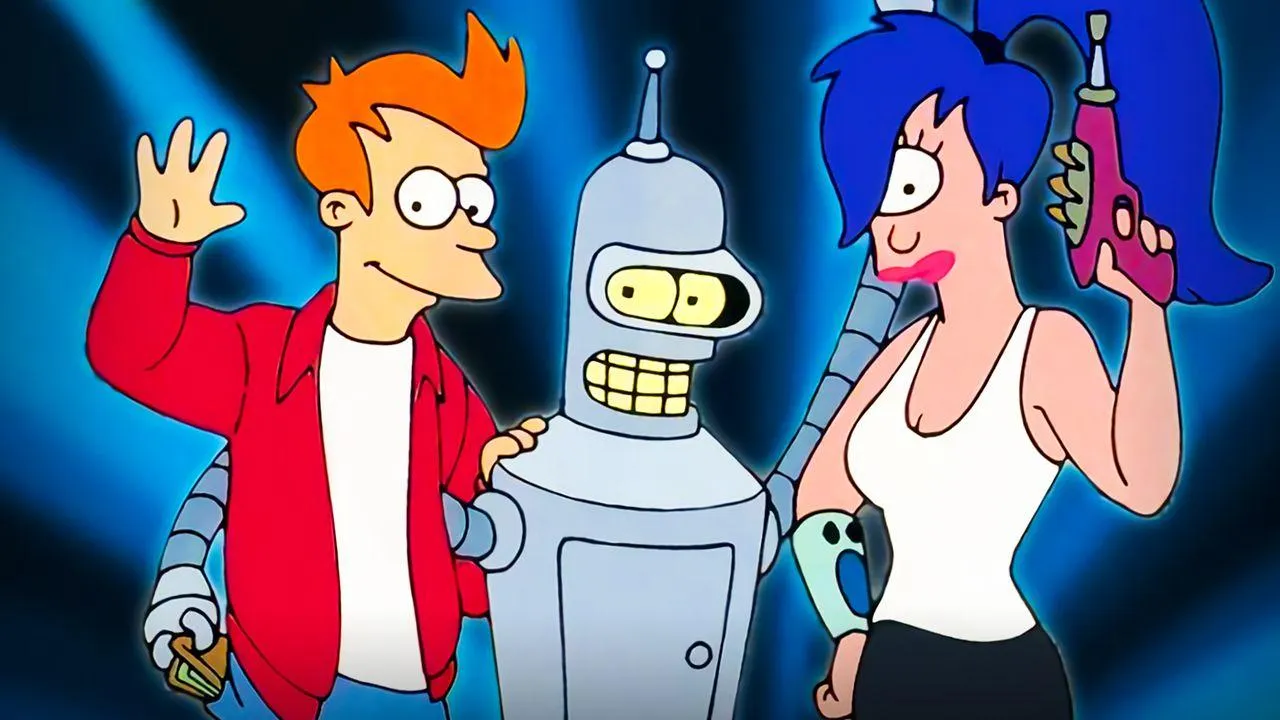
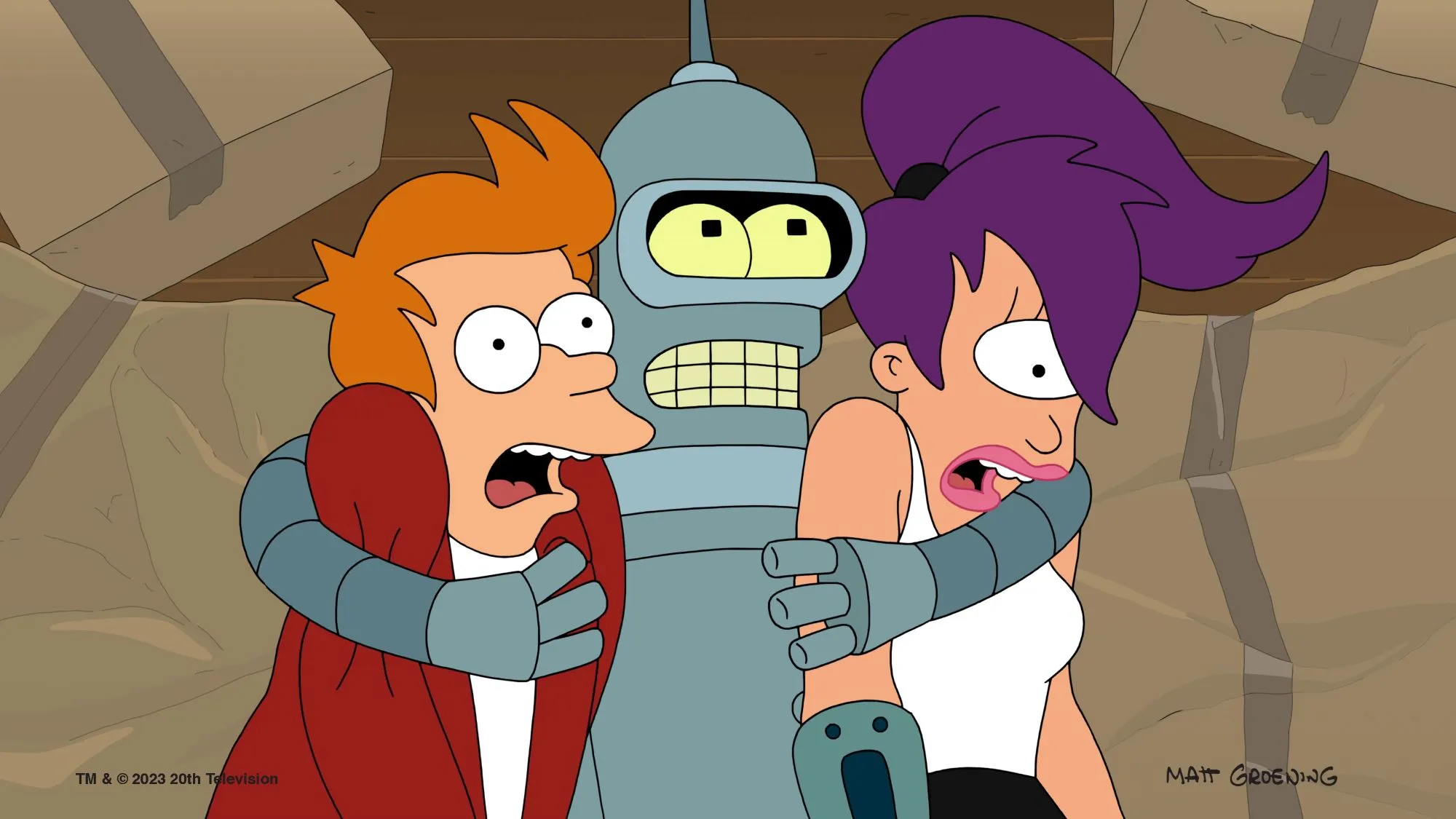
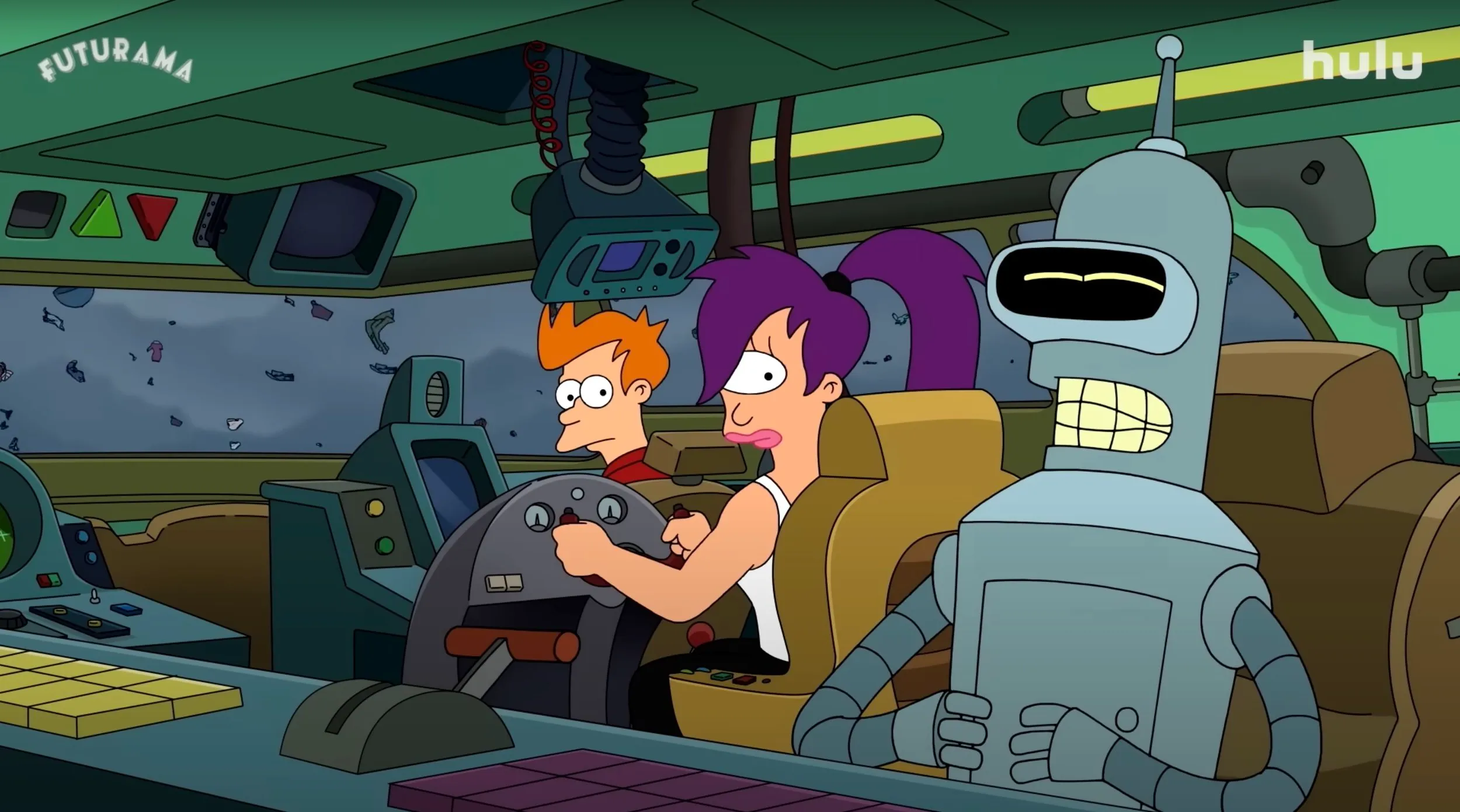
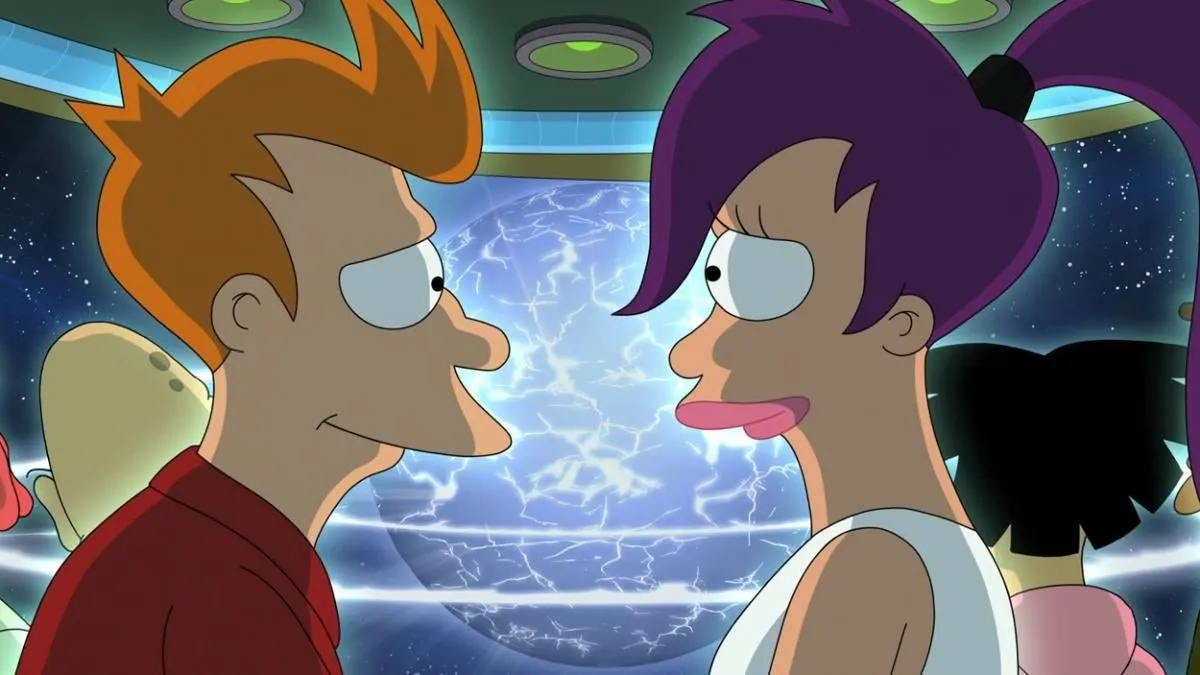








Discussion about this post